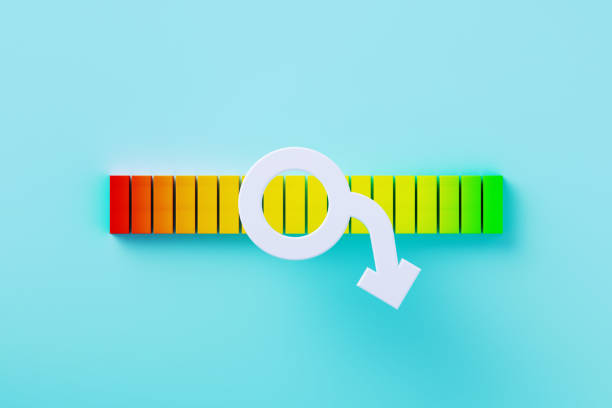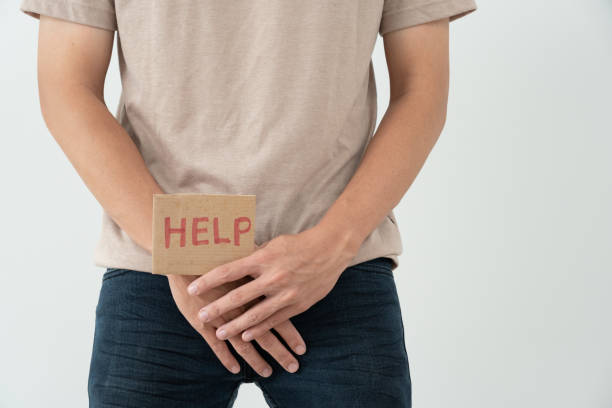Erectile dysfunction (ED) is a common health issue that affects millions of men across the globe. It can happen at any age, but it becomes more common as men get older. Even though ED is widespread, there are still many myths and wrong ideas about it. These false beliefs can cause shame, fear, or confusion. Worse, they may stop men from talking to their doctor or getting the right treatment. In some cases, these myths can even make the condition harder to manage.
In this blog post, we’re here to set the record straight about erectile dysfunction (ED). We’ll take a closer look at some of the most common erectile dysfunction myths and replace them with clear, simple facts. These facts can help you better understand the condition and know what steps to take next. Whether you’re dealing with ED yourself or supporting a partner, this guide will help you tell the difference between truth and myth. With the right information, you can feel more confident about managing ED and improving your sexual health.
What Is Erectile Dysfunction?
Erectile dysfunction (ED) happens when a man has trouble getting or keeping an erection that is firm enough for sex. It’s more than just a physical issue—it can impact a man’s self-esteem, emotional health, and relationships. ED can lead to stress, frustration, and even feelings of shame. That’s why understanding the condition and knowing it’s treatable is so important for overall well-being.
Erectile dysfunction (ED) is more common as men get older, but it’s not a normal or expected part of aging. Many men stay sexually active well into their later years. ED can happen for several reasons, such as medical conditions like diabetes or heart disease, high stress levels, anxiety, or even as a side effect of certain medications. Understanding the cause is the first step to finding the right treatment and improving your quality of life.
According to the Cleveland Clinic, about 52% of men experience some form of erectile dysfunction (ED). While it’s more common in older men, ED can happen at any age—even in men under 40. Many younger men are surprised to learn that they’re not alone. ED is a real medical condition, and it’s more common than most people think.

Myth #1: ED Only Affects Older Men
Fact: ED Can Happen at Any Age
It’s true that erectile dysfunction (ED) is more common in older men, but it’s not just a problem for them. Young men can also have trouble with erections. In fact, ED in younger men is more common than many people realize. Several factors can lead to ED at a younger age, including:
- Stress and anxiety
- Depression or other mental health concerns
- Smoking or heavy alcohol use
- Low testosterone levels
- Health problems like diabetes or heart disease
A study published in the Journal of Sexual Medicine found that one in four men who looked for help with ED were under the age of 40. This shows that ED can affect men at any stage of life, not just later years.
Myth #2: If You Can’t Get an Erection, You’re Not Attracted to Your Partner
Fact: ED Is Not Just About Desire
Erectile dysfunction (ED) is often caused by physical or emotional issues that have nothing to do with attraction or love. A man can feel close to his partner and still have trouble getting or keeping an erection. ED is not a sign that something is wrong in the relationship—it may point to a health issue that needs to be addressed.
Some common causes of ED include:
- Poor blood flow to the penis
- Nerve damage from injury or illness
- Hormonal imbalances, such as low testosterone
- Side effects from certain medications
- Mental health concerns like performance anxiety or depression
Understanding the root cause of ED is the first step toward finding the right treatment and feeling more confident in your relationship and health.
Myth #3: ED Is All in Your Head
Fact: ED Has Real Physical Causes
While stress and mental health can affect erectile function, many cases of erectile dysfunction (ED) are caused by physical health problems. Some common physical causes of ED include:
- High blood pressure
- Diabetes
- Obesity
- Heart disease
- Low testosterone levels
Mental health and physical health are closely connected. Improving one often helps the other. According to the Mayo Clinic, ED can sometimes be an early warning sign of more serious health issues. That’s why it’s important to talk to your doctor if you experience symptoms of ED. an early warning sign of more serious health conditions.

Myth #4: ED Isn’t Dangerous, So You Don’t Need to See a Doctor
Fact: ED Can Be a Sign of Other Health Issues
Erectile dysfunction (ED) is not life-threatening by itself, but it can signal deeper health problems. For example, poor blood flow to the penis may also mean poor blood flow to the heart or brain. This makes ED an important warning sign that should not be ignored.
ED can be an early indicator of serious conditions such as:
- Heart disease
- Increased risk of stroke
- Type 2 diabetes
- Hormonal imbalances
Because of these risks, it’s very important to talk openly with your doctor about ED. Getting help can improve your sexual health and protect your overall well-being.
Myth #5: Taking a Pill Is the Only Solution
Fact: Many ED Treatments Are Available
Medications like Viagra (sildenafil) and Cialis (tadalafil) help many men with erectile dysfunction (ED), but they aren’t the only treatment options available. There are several other effective ways to manage ED depending on the cause.
Other common ED treatments include:
- Lifestyle changes such as improving diet, increasing exercise, and quitting smoking
- Therapy to address anxiety, depression, or other mental health concerns
- Hormone replacement therapy for low testosterone
- Vacuum erection devices that help increase blood flow to the penis
- Penile implants, which may be considered in severe or treatment-resistant cases
According to the Urology Care Foundation, the best treatment plan depends on the underlying cause of ED. A healthcare provider can help determine the most effective approach for each individual to improve both sexual health and overall well-being.
Myth #6: ED Is Just a Part of Getting Older
Fact: ED Is Common, But Not Inevitable
It’s true that erectile dysfunction (ED) becomes more common as men get older. However, this doesn’t mean that every older man will experience ED. Many men continue to enjoy healthy and satisfying sex lives well into their later years.
Taking care of your body and mind plays a big role in preventing or reducing ED. Staying physically active, eating a balanced diet, managing stress, and maintaining a close connection with your partner can all help support sexual health as you age.
Remember, age doesn’t have to stop you from having a fulfilling and enjoyable sex life. With the right habits and care, you can stay sexually healthy at any age.
Myth #7: ED Means You’re Less of a Man
Fact: ED Does Not Define Your Manhood
Having erectile dysfunction (ED) does not reflect on a man’s masculinity or worth. ED is a medical condition, just like high blood pressure or asthma, and it deserves proper attention and care.
Unfortunately, feelings of shame or embarrassment often prevent men from seeking the help they need. But it’s important to remember that asking for help shows strength, not weakness. Getting the right treatment can improve erections, boost confidence, strengthen intimacy with your partner, and support better mental health overall.
ED and Mental Health: The Hidden Link
Mental health plays a big role in erectile function. Anxiety, depression, stress, and even low self-esteem can all contribute to ED.
If you’re feeling:
- Anxious before sex
- Afraid of “failing”
- Guilty or embarrassed
- Stressed about life or work
…it’s okay to ask for help. A therapist or counselor can guide you through these challenges. Your mind and body work together. Taking care of one helps the other.
How to Talk to Your Partner About ED
Open, honest communication can make a big difference. If you’re struggling with ED, it’s important to talk to your partner without fear or shame.
Tips for a healthy conversation:
- Pick a calm, private moment
- Be honest about how you feel
- Let them know it’s not about them
- Talk about working together to find solutions
A supportive partner can be a key part of your journey to better health and confidence.

When to See a Doctor
Don’t wait to seek help. If ED happens more than 25% of the time, it’s time to talk to a doctor. You don’t need to live in silence or embarrassment.
See a doctor if you:
- Can’t get or keep an erection often
- Have lost interest in sex
- Feel stressed, anxious, or depressed
- Have other health issues like high blood pressure or diabetes
There are real, effective solutions out there. You deserve to feel good about your health and your sex life.
The Bottom Line: Know the Facts, Forget the Myths
Erectile dysfunction is nothing to be ashamed of. It’s common, treatable, and often a sign that your body needs care.
Remember:
- ED affects men of all ages
- It has both physical and emotional causes
- Treatment works—and it’s not just about pills
- Talking to a doctor is the first step
- You’re not alone
Take Action: Your Health Matters
If you or someone you care about is dealing with ED, don’t wait. The sooner you understand the facts, the sooner you can take control of your health.

